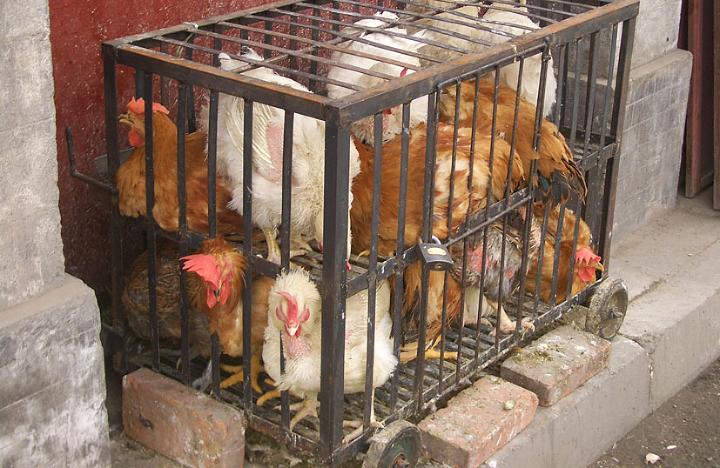 |
Canku Ota
|
 |
|
(Many Paths)
|
||
|
An Online Newsletter
Celebrating Native America
|
||
|
April 2020 - Volume
18 Number 4
|
||
|
|
||
|
We Must Listen To
The Earth
|
||
|
by Michael Waasegiizhig
Price - Tribal College Journal of American Indian Higher Education
|
||
Now is the time to reflect on our spiritual and cultural connections to the Earth. COVID-19 is a direct communication from the natural world, and we must listen and ask, “Why are you here?” Instead, many are afraid and failing to learn the lessons this disease can teach us. Traditionally, Anishinaabe people depended on those plants and animals found in our environment: fish, deer, elk, wild rice, and herbal medicines. Our cultural traditions have taught us humility; that we must ask permission before we take anything from the natural world. Our traditions also tell us to offer asemaa (tobacco) to the spirits whenever we harvest or kill anything for our own sustenance and well-being. This tradition of gifting the spirits of the natural world allows us to take what we need in a good way and without negative repercussions. These traditions also contribute to an ethical and mindful existence, making us aware of how we are impacting the Earth and all her inhabitants. These long-held traditions—Indigenous ways of knowing—ensure sustainability between us as human beings and the natural world, which we are completely dependent upon. In our Anishinaabe traditions, it is believed that if we act in a humble and spiritual way the animals will continue to give themselves to us for our nourishment and well-being. If we violate this belief or take without asking, those animals or plants may abandon us or bring negative repercussions upon us. COVID-19 and other zoonotic viruses, such as those which cause swine flu and bird flu, originate in the systemized suffering of animals, carried out to produce food and revenue. Industrialized nations charged with the responsibility to provide food for millions of people have placed profits and efficiency ahead of the dignity and respect for animals slaughtered to feed us. Cruel practices have been made commonplace, such as keeping animals in cages too small for them to move, separating the young from their mothers, and preventing caged animals from engaging in activities necessary for their growth and development. As Anishinaabe, we have long understood that ignoring natural law can have serious consequences. Traditionally harvested foods are favored for our ceremonies to convey respect for natural law and because foods borne of pain detract from our goal of connecting spiritually. In 2016, many Indigenous youths from across the nation gathered near the Standing Rock reservation in North Dakota to protect the water and prevent the construction of an oil pipeline that crosses the Missouri River. The pipeline presented a clear threat to the integrity of water quality, which would affect not only the tribal citizens of Standing Rock, but also 19 million people living downstream from the pipeline crossing. The gathering of water protectors to safeguard the river from this pipeline was seen by people around the world and it nurtured the creation of a new consciousness. The protection of water originated from the ancient Indigenous teachings about the Earth and the protection of all her inhabitants. Anishinaabe people, as well as all other Indigenous nations around the world, have a knowledge base that is thousands of years old and is constantly evolving, unlike Western science which, comparably, is still in its infancy. Indigenous knowledge and languages have been attacked throughout colonial history, but the essential nature of those teachings continues to re-emerge in the thoughts and dreams of Indigenous-minded peoples. Now is the time to reflect on our spiritual and cultural connections to the Earth. Instead of asking, “How can we kill this virus?” We could ask, “How do we re-orient our lives to be gentler with the Earth and everyone on it.” Today, we must listen to our scientists, epidemiologists, and healthcare providers. They are our front-line defense against the spread of COVID-19. It is my hope that industrialized society may realize what Indigenous peoples have been saying all along about respect for the Earth and all of her inhabitants. This mindset will ensure the sustainability of our existence on this planet. Michael Waasegiizhig Price (Anishinaabe) is a traditional ecological knowledge specialist at the Great Lakes Indian Fish and Wildlife Commission, a longtime tribal college educator—serving at Leech Lake Tribal College and White Earth Tribal and Community College—and the founding president of Red Lake Nation College. |
||
|
|
||
|
|
||
| Canku Ota is a free Newsletter celebrating Native America, its traditions and accomplishments . We do not provide subscriber or visitor names to anyone. Some articles presented in Canku Ota may contain copyright material. We have received appropriate permissions for republishing any articles. Material appearing here is distributed without profit or monetary gain to those who have expressed an interest. This is in accordance with Title 17 U.S.C. Section 107. | ||
|
Canku Ota is a copyright ©
2000 - 2020 of Vicki Williams Barry and Paul Barry.
|
||
 |
 |
|
|
The "Canku
Ota - A Newsletter Celebrating Native America" web site and
its design is the
|
||
|
Copyright ©
1999 - 2020 of Paul C. Barry.
|
||
|
All Rights Reserved.
|
||
